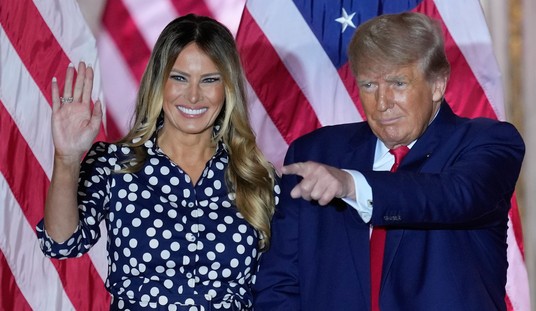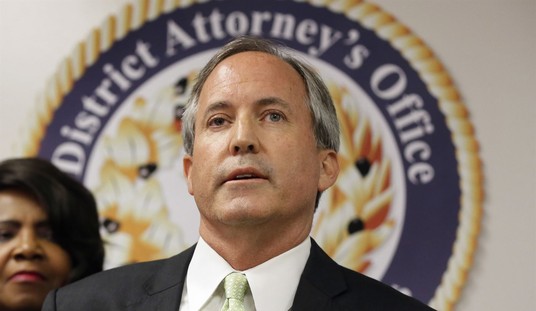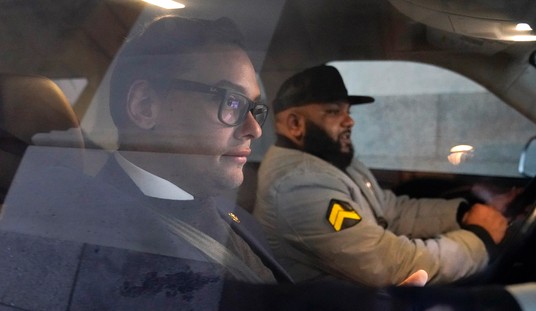Big Labor had a lot of high hopes when Barack Obama won in 2008. They expected a raft of friendly legislation to force workplaces to organize, but instead the Obama administration spent their political capital on ObamaCare and Dodd-Frank rather than card-check and micro-union recognition. The dreams of union nirvana have turned into nightmares of reform — and in the most unlikely of places, too, like formerly pro-union states like Wisconsin, Indiana, and Michigan, which went Right to Work yesterday.
No sooner had that fight finished than a new front opened, this time in Virginia. In case the Obama administration has any idea of trying to pass card check, the legislature wants to prevent it with a state law requiring secret ballots in organizing elections:
In Virginia, already a right-to-work state, the Senate’s Privileges and Elections Committee recently passed a bill that calls for amending the state’s constitution to guarantee voter privacy in union elections.
Held over from the 2012 General Assembly session, the bill is expected to come to the Senate floor in the session that opens Jan. 9.
“This amendment is essential if we are going to preserve voter integrity and privacy,” said Sen. Bryce Reeves (R-Spotsylvania), who introduced the measure. “No citizen should be forced to reveal how they voted in any election, be it a federal, state, local or a union election.”
As Virginia is a right-to-work state already, this may be less critical for reform than it would be in closed-shop/forced-dues-extraction states. If unions organize a workplace in Virginia, the workers that voted against it could refuse to join the union and refuse to pay dues if they don’t want to do so. That’s more choice than workers had in Michigan before yesterday’s action. Still, it’s an important step against the kind of abuses card check would bring.
In fact, while we’re talking about worker choice, just what do unions have to fear from it — if they deliver the benefits they claim to workers for the money it costs them? In my column for The Week today, I argue that workers should have the choice to organize a workplace, but also the choice not to join a union or pay dues if they don’t see a benefit from the service. Why should unions be exempt from the same dynamics of voluntary association that control the transactions between consumers and providers in every other context?
However, unions claim that the reduction in revenues and dissent in the workforce will weaken their hand at the bargaining table, lowering wages and working conditions. That might be true, but it’s not as if much of the revenue goes to that purpose now. Michigan Capitol Confidential took a look at recent federal filings by Michigan’s largest union, the Michigan Education Association, and discovered that only 11 percent of dues went to “representational activities.” Over half of the dues (61 percent) went to “general overhead” and benefits for union employees rather than direct services on behalf of workers. No dollars got spent “on behalf of individual workers,” the form notes, but almost $5 million went to “political activities and lobbying,” nearly a third of what was spent on “representational activities.”
Perhaps workers support that distribution of their money. If so, they still can support the union through voluntary dues payments. Nothing in the new law prevents workers from doing so, but the success of generating revenue will now depend on the union providing workers with enough good reasons to pay dues, rather than just taking the money before workers even get their hands on it. In any other enterprise other than government tax collection, organizations have to convince consumers and/or members that their goods and services are worth the price demanded. Why should that not be true of unions?
Will this kill the power of the unions in Michigan? That may have already happened even without a theoretical-but-likely reduction in revenue from right-to-work legislation. Michigan voters had an opportunity five weeks ago to preclude the legislature from taking this step by passing Proposal 2, which would have amended the state constitution to make closed shops and forced dues collection unassailable. Even while right-to-work critic Barack Obama handily won the state by nine points, Proposal 2 lost by 16. The legislature took that result as a sign that Michigan voters want reforms that put them in charge of their own paychecks.
Workers should have the right to organize for the purpose of collective bargaining with their employers, if they so choose, but workers should not be forced into funding unions as a condition of employment. Unions at one point embodied reforms that transformed workplaces from exploitation to partnerships, and made great advances in worker safety, autonomy, and dignity. Unfortunately, they have in some ways become as intransigent, unaccountable, and as consumed by the pursuit of power as management of old. Perhaps a little reform will do them some good, too.
Rick Newman argues in US News that unions allowed themselves to become anachronisms and need to reform themselves to remain relevant:
We are also entering an era in which Americans value individual initiative more than collective welfare. For better or worse, our modern heroes are entrepreneurs like Steve Jobs and Mark Zuckerberg, not team players such as union leaders or even CEOs. This is happening as public trust in government and other institutions is falling to record lows, as is loyalty between companies and their workers. More Americans are striking out on their own, some because they want to, others because they have no choice. We’re becoming a DIY nation, and unions don’t fit that identity.
Unions have fallen out of step with the initiative many Americans need to show these days, and the sacrifices they need to make. Most unions have held on to defined pension plans, guaranteed healthcare and other perks far longer than the overall workforce has. In some municipalities, this is forcing a showdown between taxpayers being asked to fork over even more money so unionized firefighters, police officers, teachers and sanitations workers can enjoy more job security and better benefits than the people paying their salaries. That sort of imbalance can’t last very long in a democracy.
Finally, Michigan is undergoing a demographic shift in which union members and their families become a smaller and smaller part of the population, as unionized companies fold or move elsewhere, and new companies avoid Michigan while scouting lower-cost states like South Carolina, Alabama, or Texas. The whole nation is grappling with trends like this as the value of skills changes rapidly and employers test just how far they can push their workers. In Michigan, that test may only be getting started.
The PEU reform that Wisconsin passed will go a long way towards restoring the balance that Newman rightly says has vanished. Too bad unions had to be dragged to that reform.








Join the conversation as a VIP Member